
[ad_1]
With a protest at the iconic Brandenburg Gate in Berlin, Animal Equality has officially launched a global campaign against the grocery store chain ALDI. While the company is widely supported in Germany for its strong animal welfare policies, its U.S. supply chain lacks any meaningful protections.
Over a dozen activists gathered with banners and posters as three gestation crates stood on display, symbolizing the confinement of pregnant pigs that ALDI U.S. allows. Protestors demanded an end to double standards in ALDI’s supply chain, pointing to discrepancies between its German and U.S. animal protection policies. The demonstration sparked the attention of hundreds of tourists, school classes, and other pedestrians.

Double Standards for Pig and Hen Welfare
ALDI in Germany advertises its progressive animal welfare standards, positioning itself as a model for the German marketplace. In line with the increasing demands of a conscientious public, ALDI in Germany does not use gestation crates for pregnant pigs or battery cages for hens in its supply chain.
Meanwhile, factory farms supplying ALDI U.S. continue to cage pregnant pigs in gestation crates, which are too small for them to simply turn around in. Hens used for eggs also agonize in filthy battery cages, unable to flap their wings or exhibit any natural behaviors. They often trample their dead companions’ bodies.
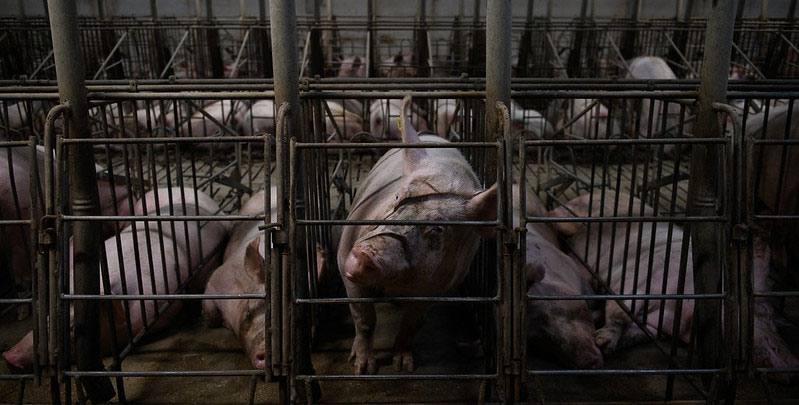
Advocates point out that while ALDI in Germany has continued to profit from its humane-washing campaigns, ALDI U.S. has failed to live up to the German public’s standards. Germany banned gestation crates for pregnant pigs in 2021, but only eleven U.S. states have done the same.
We are calling on ALDI to implement the same animal welfare standards for pigs and hens in its U.S. supply chains as are already applied in Germany, and also by its main competitors in the U.S.
Vaness Raith, Executive Director of Animal Equality in Germany
After careful dialogue with ALDI, Animal Equality has initiated this global campaign with further actions planned in both countries. Advocates have now called on ALDI to publicly commit to a meaningful policy for pigs and hens.
Battery Cages Under Fire
Hens in the ALDI U.S. supply chain are often kept in wire enclosures called “battery cages.” These cages are designed with sloping floors so the birds’ droppings can be collected in drip pans. Many hens lose their feathers in these filthy, cramped conditions.
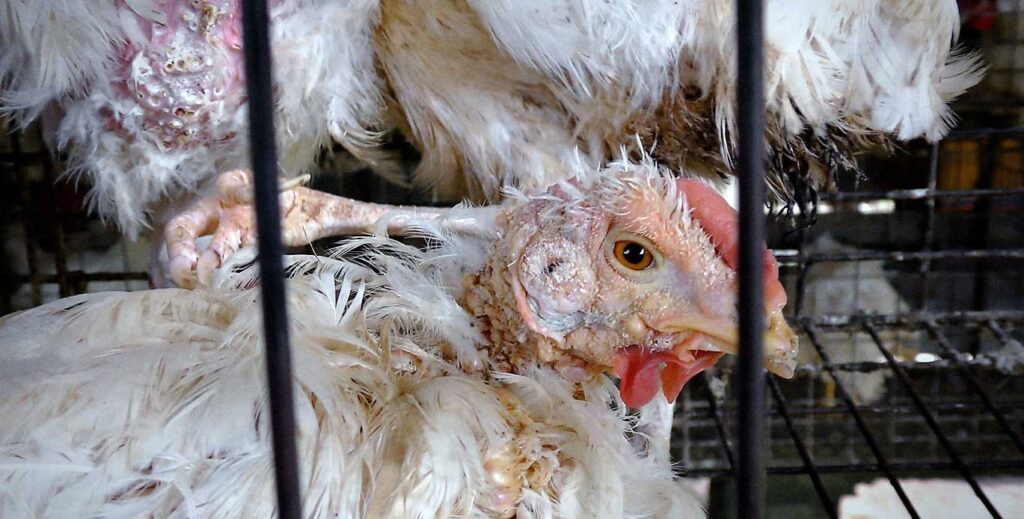
Generally, one battery cage holds between four and ten hens, with each animal having less room than a sheet of printer paper. Hens cannot take more than a few steps, nor can they spread their wings, perch, dust bathe, or forage. Research has repeatedly shown that suppressing nesting behavior for hens causes suffering.
Because they cannot carry out natural behaviors, hens often exhibit stress-related behaviors. This includes pecking at other chickens, general restlessness, or “idling” nest-building, in which a hen mimics the nest-building process. Since hens in the egg industry lay eggs 300 days per year, these atypical behaviors pose an ongoing problem for the animals.
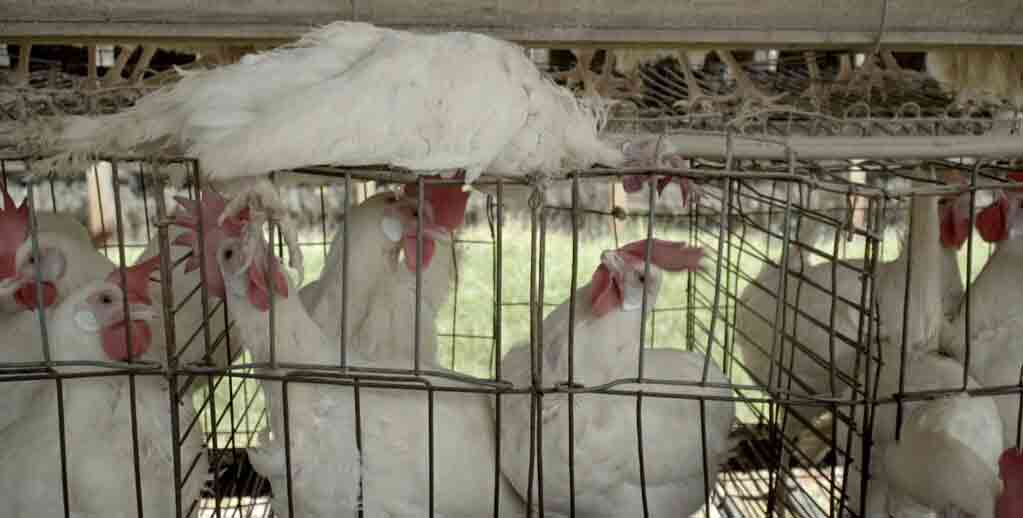
Battery cages also cause physical impairments. The wire, mesh floors cause foot diseases, such as hyperkeratosis on the pads of the toes, which can lead to painful, open lesions on their feet. Hens even suffer from bone brittleness due to artificial selection, which causes them to lay an unnatural number of eggs.
A lack of calcium and exercise often causes paralysis. Paralyzed hens can no longer reach their water and die slowly of thirst. Advocates argue that battery cages aren’t just inhumane; they are also grossly out-of-date.
ALDI Turns its Back on Mother Pigs
On factory farms supplying ALDI U.S., most pregnant pigs are kept in crates throughout their entire pregnancies. Here, they suffer from animal welfare violations that would not only be illegal in Germany, but also contradict German consumers’ expectations of ALDI’s commitment to protecting animals.
These gestation crates are barely larger than pigs’ bodies, meaning the bars often dig into their skin. Pigs can’t turn around or take more than one step forward, leaving them to claw at the metal bars for months at a time. After giving birth, they are inseminated again, destined to repeat the cycle.
It is scientifically proven that pigs are highly active, intelligent animals. Gestation crates restrict their natural behaviors, including mud bathing, foraging, exploring, and socializing with other pigs. This leads to discomfort, pressure sores, and higher infection rates.
It also leads to behavioral disorders known as “stereotypies.” These include biting the metal bars out of frustration, boredom, and hunger.
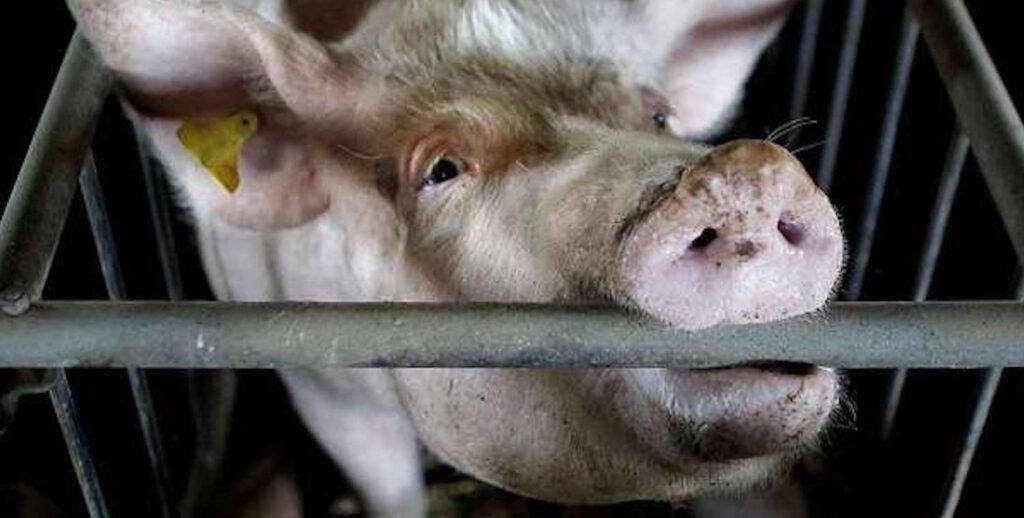
Animal Equality in the U.S. has been fighting back against gestation crates with campaigns against major chains and retailers. Join us in exposing double standards in ALDI’s supply chain and putting an end to extreme confinement for mother pigs.
You Can Join the Fight
Animal defenders around the world are taking a stand against factory farming’s cruelest practices. You can join the action by signing our petition, commenting on social media, contacting ALDI via its website, and sharing this story with your friends and family.
Tell Aldi what you think of their support for cruel cages!
While holding corporations accountable for animal cruelty is no small task, you can take a very simple step for animals each time you sit down to eat. By replacing meat, eggs, and dairy with plant-based proteins, you can prevent suffering while rediscovering your love for fresh, compassionate, and sustainable foods.
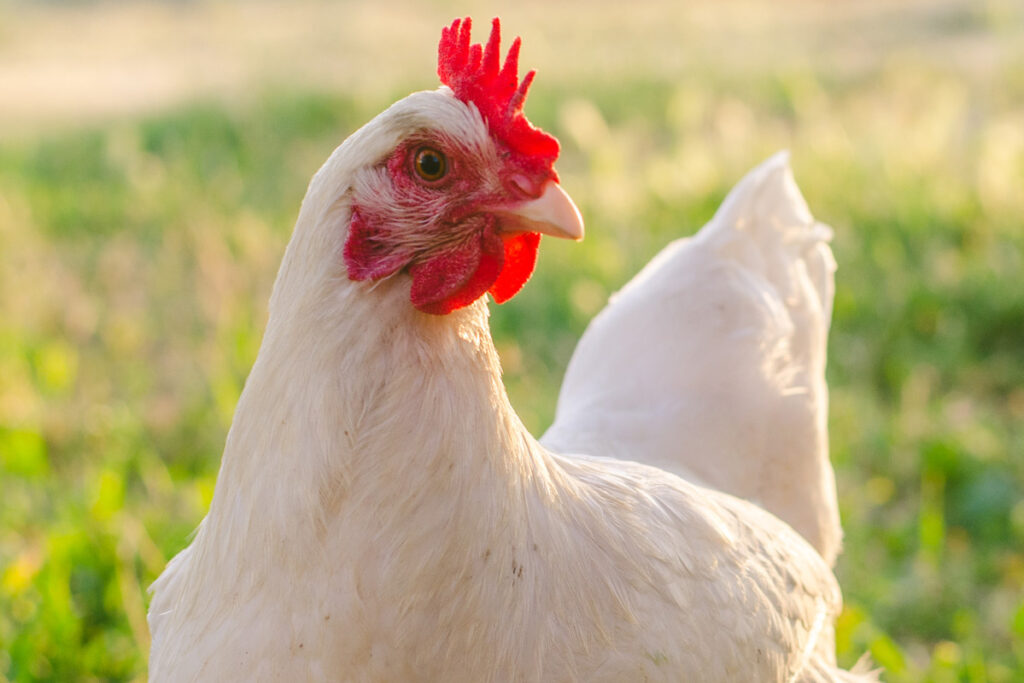
CHOOSE LOVE
Chickens are emotionally complex animals capable of empathy and forming special bonds with fellow animals.
Protect these sensitive and social animals by choosing plant‑based alternatives.
[ad_2]
Source link

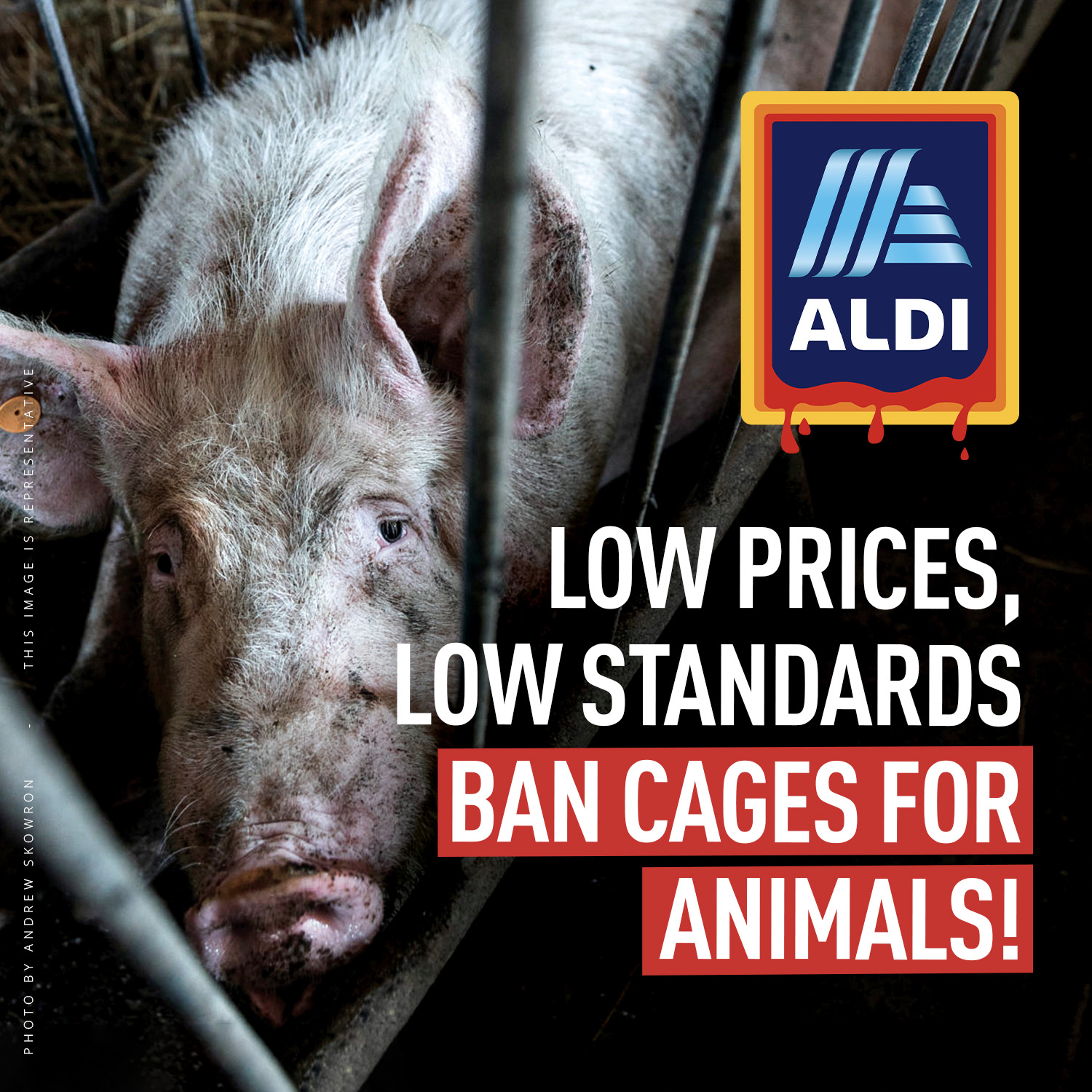
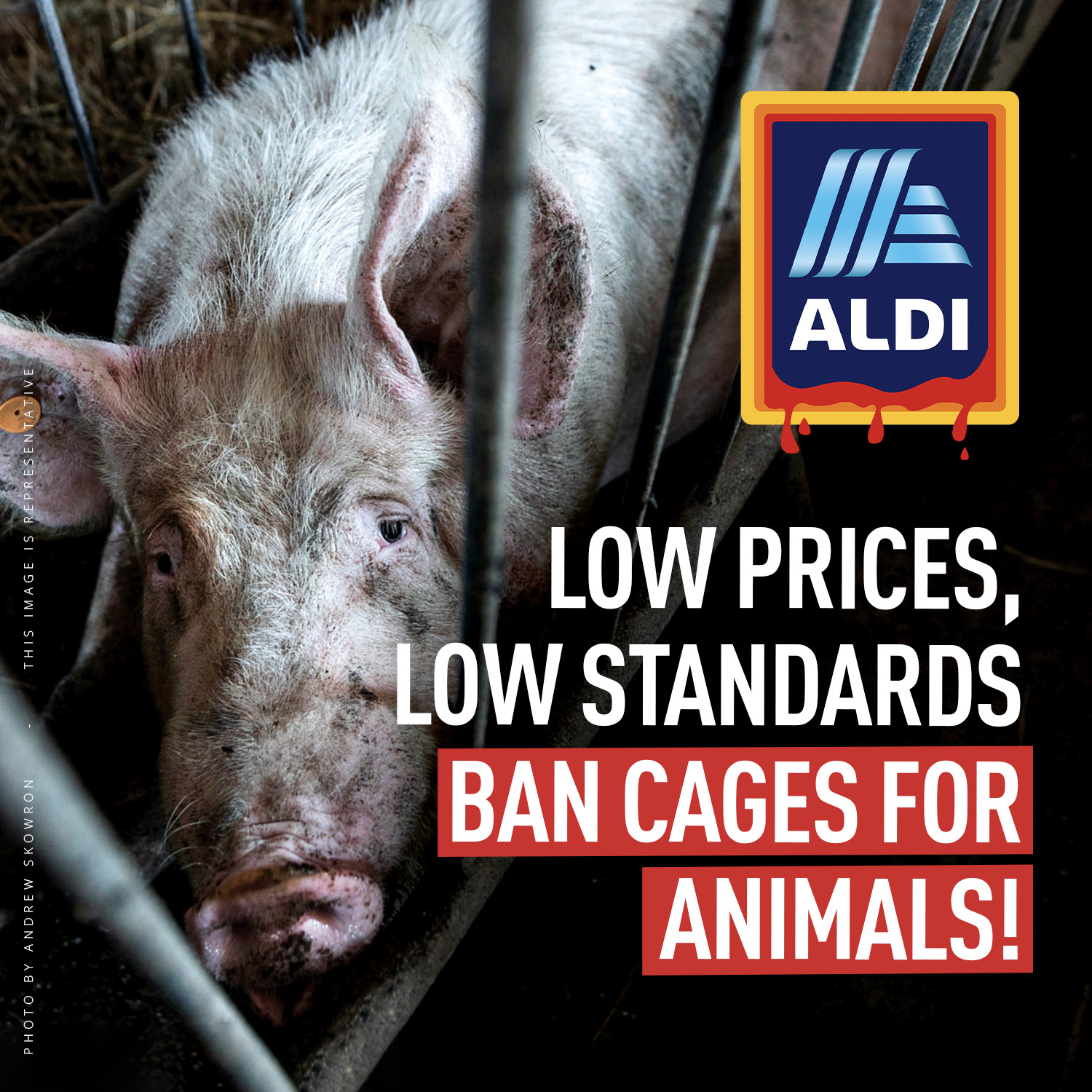
Leave a Reply